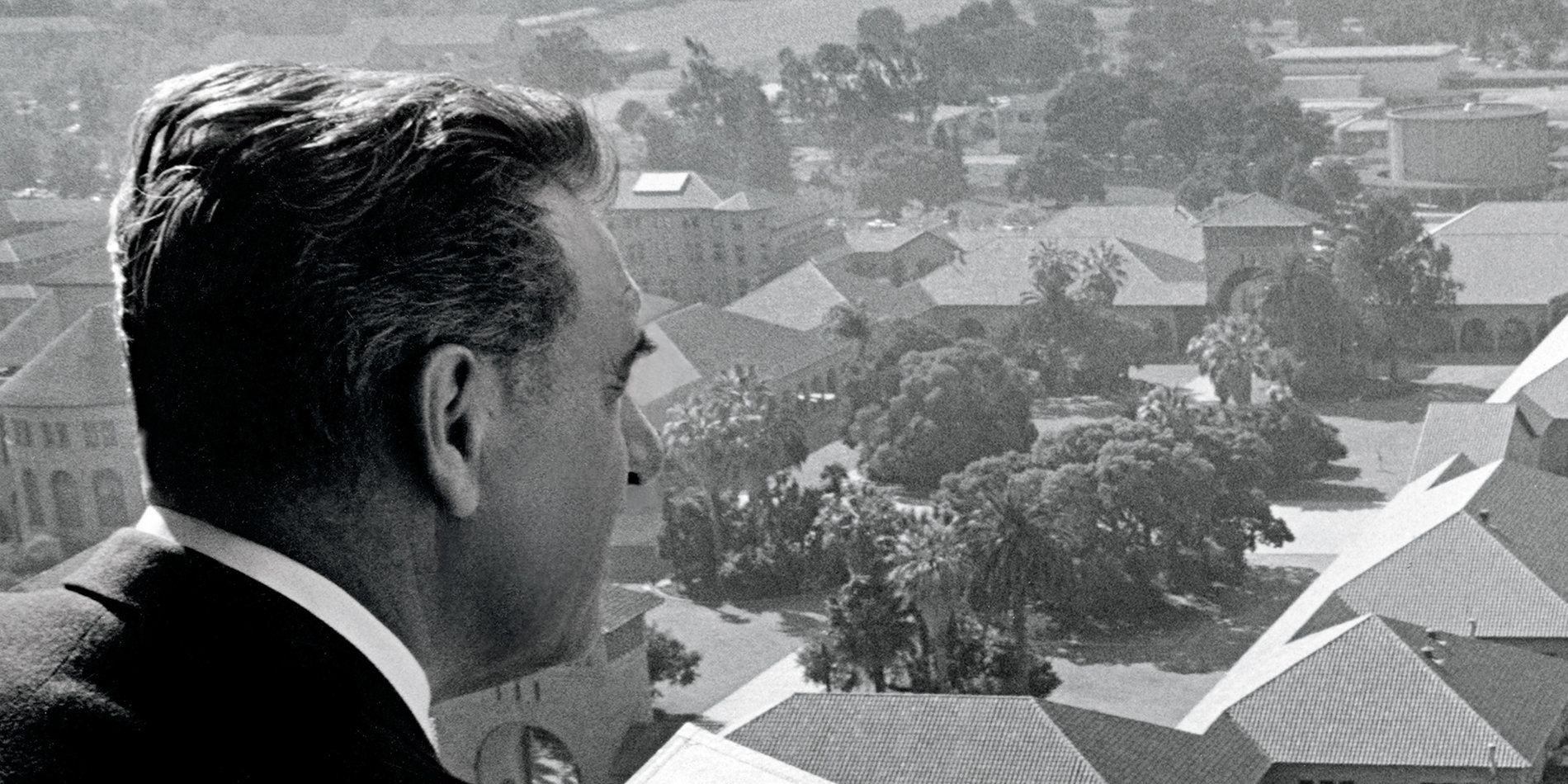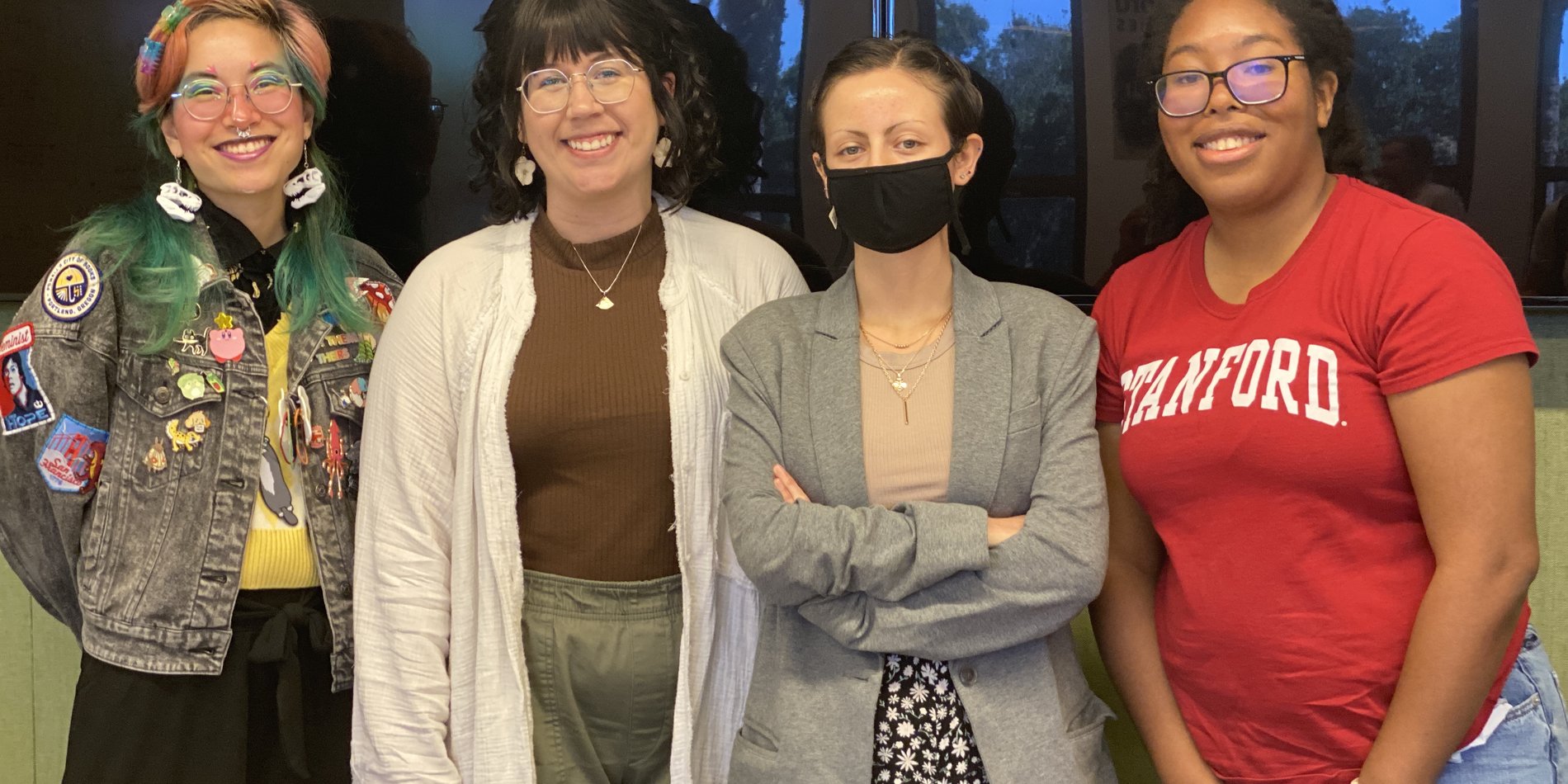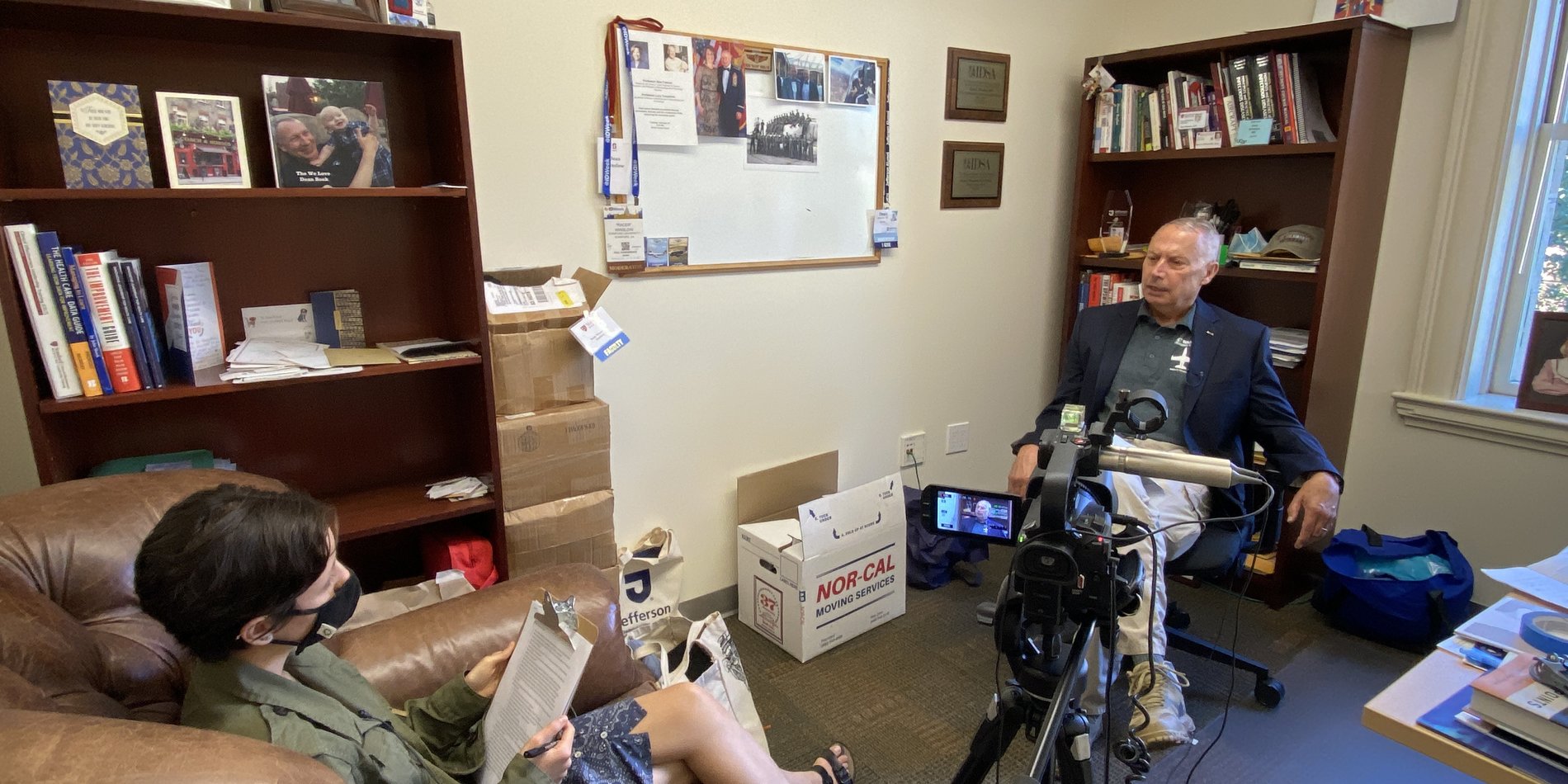Stanford Oral History Program Summer Interns

From left: Maika Sato Jones and Oral History Program Assistant Makeda Barr-Brown
Three Stanford students, sponsored by the Stanford Historical Society (SHS), spent the summer as interns with the Oral History Program under the supervision of program staff Natalie Marine-Street and Makeda Barr-Brown. Founded in 1978, the Oral History Program explores the institutional history of the university through interviews with faculty, staff, alumni, trustees, and other members of the community. The program relies on student and volunteer interviewers and editors who have helped complete nearly 1,000 oral history interviews since its inception.
The interns processed oral history interview materials from Stanford faculty, staff, and alumni projects, readying them for deposit in the University Archives. They also helped jumpstart a project on the departmentalization of the African and African American Studies (AAAS) Program, collaborating with project coordinators in planning, conducting pilot interviews, and editing transcripts.
Oral History Program Assistant Makeda Barr-Brown notes, “The interns are making a real contribution to the historical record by documenting an important organizational and cultural change that recognizes the passionate activism of Black students, faculty, staff, and a diverse group of allies. We’re proud to record histories of an extraordinary event that’s part of the long history of Black activism at Stanford and other universities. I hope that recording this institutional knowledge will be of value to others who hope to strengthen cultural studies programs.
All three interns, featured here, gave virtual presentations about their summer projects.

Lauren Amaturo
Undergraduate Lauren Amaturo (Class of 2025) edited transcripts and wrote abstracts for a variety of projects, including the Childcare at Stanford and the John Gardner Fellowship Association projects. In her presentation, she identified unifying themes throughout all of the projects she worked on, including the importance of collaboration, activism, accessibility, community, and resilience. She was particularly gratified to learn more about the history of Asian American Studies at Stanford and the student activism that occurred to establish the program through the AAPI Student Activism Oral Histories project. “There’s just so much of Stanford’s history and current issues that I honestly would not have known if I hadn’t done a project like this,” she remarked.

Maika Saito Jones
Maika Jones (Class of 2023), who is studying International Relations and History with a specialization in East and South Asia, worked primarily on processing the Disability at Stanford Oral History Project, gaining a respect for the work that goes into preserving and making interviews accessible. “Oral history is the building block of history. It’s a very indispensable and crucial resource for future research. Many don’t think about the work of archiving--the multi-step process that oral historians go through to properly record, organize, and preserve important topics that will eventually become history for people to conduct research on,” she said.
Jones, who conducted an interview with graduate student and AAAS Departmentalization project co-coordinator Casey Patterson, also developed a deep appreciation for oral history interviewers. “I sense this compassion and thoughtfulness from interviewers that I’ve encountered…it’s very clear that they care about hearing the interviewees’ stories and that they’ve done their homework about relevant topics.”

Asa Kohrman
Asa Kohrman (Class of 2022 and 2023) is a first-year master's student studying Computer Science and received her undergraduate degree in History. She conducted interviews for the AAAS Departmentalization and Stanford, COVID-19, and Crises of 2020-21 projects. Kohrman also worked on a number of transcripts for the 2021 Alumni Reunion project where she was able to uncover many hidden histories of student life at Stanford.
When speaking about the impact of oral history, Kohrman stated, “You get to capture the stories that aren’t going to be recorded in any other type of history.” She noticed themes of community and friendship throughout the interviews she worked on and was fascinated by the cultural evolution of Stanford evident in alumni interviews.
During her presentation, she reflected on the idea of optimism in oral histories and the circumstances that allow for optimistic viewpoints on difficult subjects. In her presentation she elaborated that, “As I was doing this AAAS interview, I was really struck by the intersection of burnout and optimism and hope and deep, deep, deep disappointment…I am overwhelmed by the different ways that oral history can present views of the past that can be so many things at once.”
Program Manager Natalie Marine-Street expressed enthusiasm for the interns’ accomplishments this summer, as well as their trenchant observations on the methodology of oral history. “Our summer interns experienced the joys of helping others to tell their stories and the challenge and hard work of preserving them. They also began to reckon with the analytic potential and special nature of oral histories as sources. I hope they are as proud of their hard work as I am.”
For more information about internship opportunities for Stanford students, visit the SHS website.


